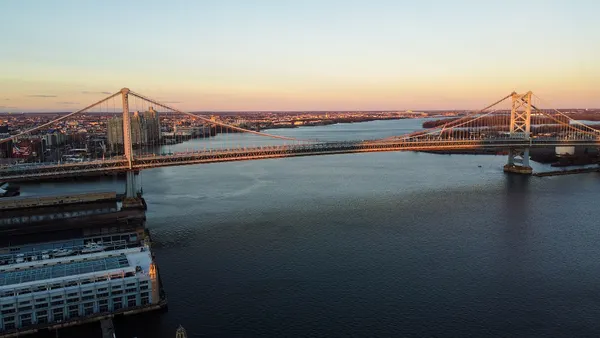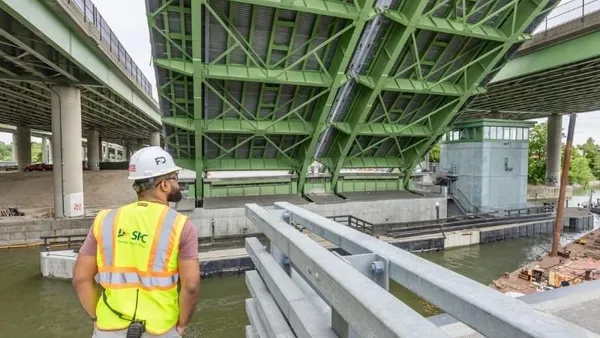Dive Brief:
- The Minnesota DOT has announced that $1.2 billion of transit-related projects will kick off in 2019. More than 200 highway, road and bridge work projects will collectively total more than $1.1 billion, and airport, port, transit and railroad projects, according to Finance & Commerce, have an approximate value of $56 million.
- The biggest spends are planned for work in the Minneapolis-St. Paul metro. The DOT will put at least $288 million into work along area highways — $113 million to replace a bridge over the Minnesota River along Interstate 35W and $131 million to install noise and retaining walls, construct a transit station, build MNPass lanes and build, repair or replace 44 bridges on I-35W and Highway 10.
- In the announcement, Transportation Commissioner Margaret Anderson Kelliher called the DOT’s prospects for long-term funding “bleak” and projected an $18 billion financing shortfall during the next 20 years. Kelliher said there are another 500 DOT projects still on hold and that without additional funding the state’s infrastructure assets will "continue to deteriorate and our overall system and economy will suffer.”
Dive Insight:
Minnesota, Ohio, Connecticut, Colorado — the list goes on of state DOTs facing highway construction funding shortfalls either in the immediate future or within the next several years. The federal government provides a portion of that money through the Highway Trust Fund, but that mechanism has its own share of problems.
According to the U.S. General Accounting Office, the HTF system has been “high risk” since 2007 because the government has no long-term strategy to keep the fund’s balance at an adequate level. Federal fuel taxes feed the fund, and those haven't been raised since 1993. So, in order to be able to allocate $40 billion to $50 billion a year to the states, Congress had to transfer approximately $141 billion of general revenues to the HTF from 2008 to 2015. The GAO projects the fund will need another $107 billion between 2020 and 2026.
Federal lawmakers have been unwilling to raise the federal tax rates on gas and diesel, but some states have stepped in where the U.S. government will not. Ohio lawmakers recently agreed to raise state gas and diesel taxes, which will bring in more than $850 million per year for road and bridge funding. The governor still must sign off on the deal, but starting July 1, Ohioans will pay state taxes of 38.5 cents per gallon for gasoline and 47 cents per gallon for diesel.
In Connecticut, officials are weighing the possibility of implementing an all-electronic tolling system on its state highways in order to raise about $1 billion each year for infrastructure. Lawmakers, however, are preparing for pushback as Connecticut residents already pay some of the highest tax rates in the U.S.













